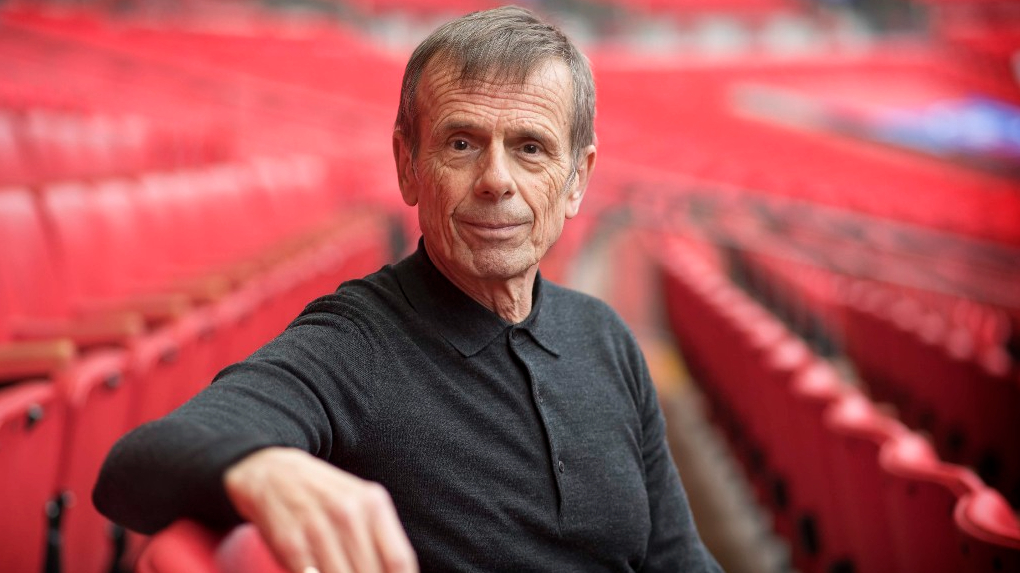This week, I’m delighted to share my exclusive interview with sportswriter Tom Watt. Tom has had an illustrious career as a writer, which has seen him write several books, work with EA Sports, and achieve amazing things in the sports industry. He shares how the journey began for him, his thoughts on the evolution of digital’s impact on writing, and the power behind storytelling.
Q1) Tom, it’s great to have you on Ash’s Sports Talk. Let’s kick this off by hearing how your sports career started?
It happened by accident, really. I grew up watching football. I lived about 20 minutes walk from Arsenal. I always played for fun. I was useless, but I really enjoyed the game. I was previously on the UK soap opera Eastenders; we had a charity football team from the show and travelled all over the country playing games. I met people and got an insight into the real world of football.
I got an idea for my first book, The End, when they turned terraces into all-seaters at stadiums everywhere after Hillsborough. That book was the first time oral history techniques were applied to football. I gathered material about the whole experience of watching football from the terraces, specifically the North Bank at Arsenal. The book sold really well, and everything else followed on from that.
I got contacted by the Observer newspaper about doing some pieces for them, including writing match reports regularly. I really enjoyed that. I’d never done anything like it before and wrote for them regularly for 4 or 5 years, covering everything from European Championships to games from the lower leagues. Those experiences led to more media opportunities: radio and TV, first as a guest and then as a presenter. Everything followed on from that first book.
Q2) I’ve noticed you have an enormous amount of writing experience; what were the essential skill-sets you built up being a writer in the sports industry?
I’d say the skills I developed maybe aren’t the exact skills you need to be successful now. So much has changed in the game itself and coverage of it. So, younger people have come in with a different energy, a different approach and a different perspective on the game. They’re also willing to work for less, a lot less than I could afford to! Watching top-level football now is a bit like going to the cinema. This generation’s audience for the game is much wider, and people want simple narratives to follow.
Now, reporting on matches is focused on minute-by-minute and then post-match quotes. I didn’t need to produce either for the Observer: I just told the game’s story. Capturing real-time reactions on social media has become crucial; controversy and talking points are what coverage is now tailored towards. Essentially, writing about football has become more short-form, reacting to flashpoints and feeding well-established narratives. Maybe I’m just a bit old for all that. I prefer writing books and focusing on longer-form writing. Either way, though, a passion for football is the key to writing about the game.
Q3) I’m aware you’re a writer & consultant for EA Sports FIFA. What does your role look like?
Five years ago, EA decided they wanted to introduce a story mode into the game. This meant a gamer could play as a character, following their journey through a whole career. I was approached to help ensure that the story and characters were credible. That role developed into me helping to create the narratives themselves and find convincing voices for the characters.
EA recently released a ‘Volta’ mode on FIFA, essentially a rebrand of FIFA street. I did some similar work on the story mode for that, too. Across the whole game, not just story modes, there are many text sequences to cover press articles, conferences, and written communication between characters. That’s something I’ve worked on as well, bringing the written text up to date.
Q4) In a world where things are going digital, more attention is being shifted towards podcast, video, audio etc. What makes written text unique to this day?
At some point, you’ll need to put words on paper – or on a screen — even if your idea doesn’t actually involve dialogue as such. You can have a pretty good career in sports media, producing content that lasts for a minute and a half and consists of many images or animations. However, in the long run, and across all media, people will always want stories as that’s how human beings actually communicate. Whether that’s writing a narrative down, using pictures, sitting in a room and verbally telling a story, or using imagery to guide a documentary, they’re all ways of telling stories.
Q5) With any successful career, there comes an array of challenges. What challenges have you experienced throughout your sports career?
I’ve been fortunate throughout my career. I grew up wanting to be an actor and became one. I got a break in sportswriting, which led to other opportunities, like a ripple effect. I think the challenge is greater today. So many more people want to work in the field. But what’s key is to recognise that there will be spells in life that will be better than others. You’ve got to hold your nerve, really, and be patient. Believe in yourself enough to have faith that things will be okay. It may take time, but things will eventually fall into place if you work hard enough.
Q6) Tom, reflecting on this discussion, what advice can you give to the next generation’s sportswriters?
As there are so many people out there trying to do what you want to do, you’ve definitely got to be prepared to work harder than anyone else! Take every opportunity that comes along because you’ve no way of knowing if and when things will take off for you.
Six months ago, I did an interview for a guy named Callum McFadden; he was a teacher, but COVID came along and changed things for him. He had the time to devote to what had previously been a hobby. Now, a year later, half a million followers are consuming his content. He’s attracting big-name guests, involving other writers, producing written content as well as podcasts. He took advantage of what was essentially a bad situation – the pandemic – and made a commitment. He’s now starting to reap the benefit of all that hard work.
Over the long term, I’d also say that protecting your integrity will never do you any harm. So often today, people focus short-term and will say or do anything just to get an instant reaction. But I think your writing (and your quality of life!) will always be better if you stay true to yourself.
Wow, what a great chat with Tom. He’s shared plenty of insights into swapping Albert square for the football pitch, the power behind storytelling and remaining true to your values. What was your most important lesson from Tom?

